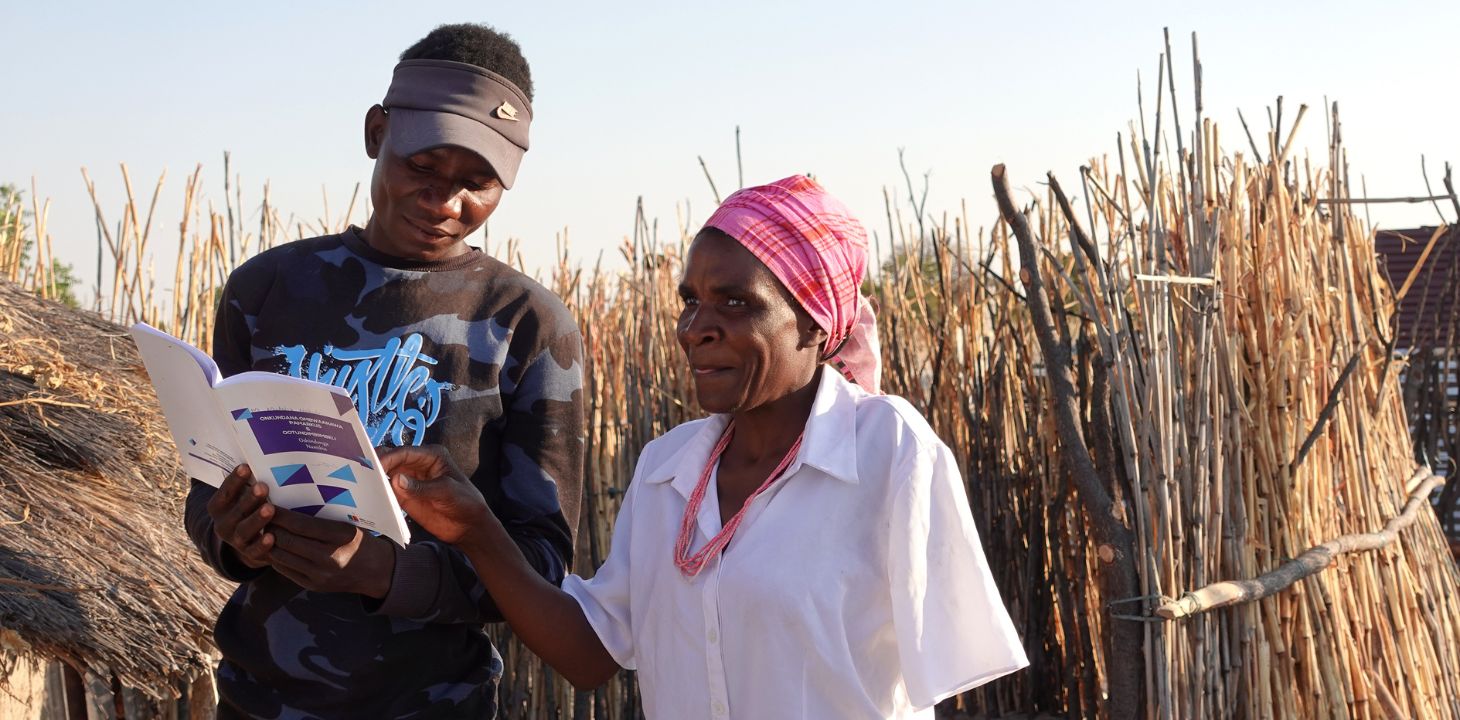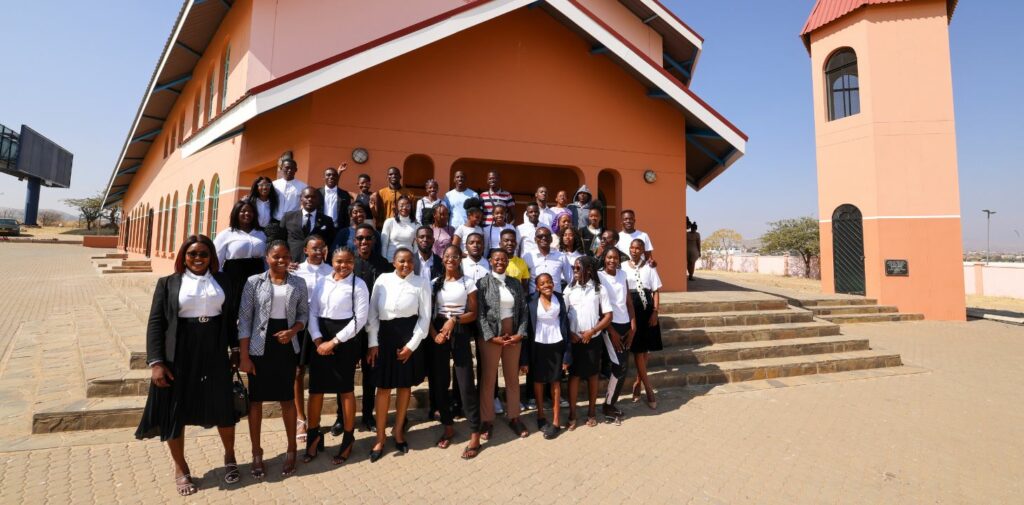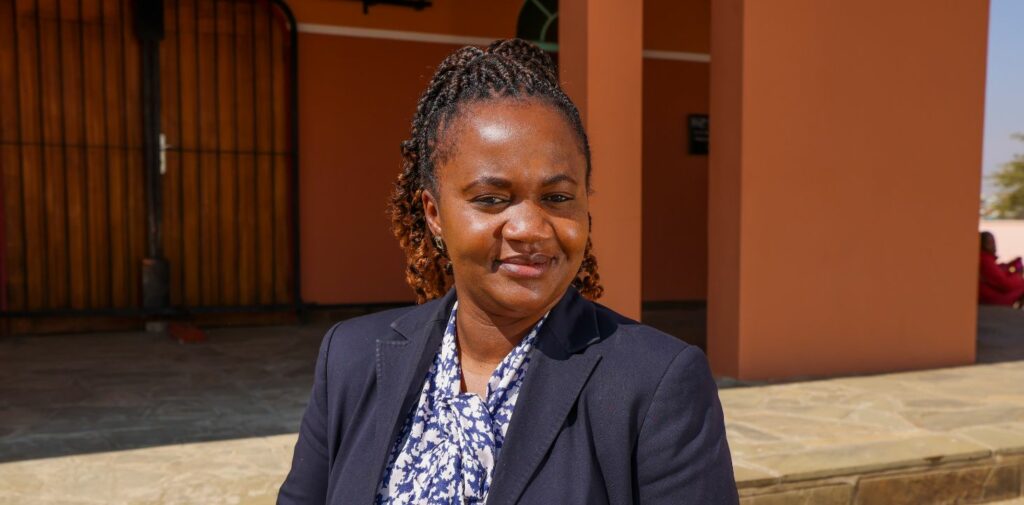Same gospel for villages and cities of Namibia

More than twice the size of Finland, Namibia is a country of long distances. In the north there are many traditional houses built of clay and straw. In the south, in the capital Windhoek, skyscrapers tell the story of the country’s development. Migration is strong from the north to the capital. The speakers of Oshiwambo languages, Ndonga and Kwanjama, are the people with the most rapid migration. A new Bible translation is being prepared for them.
From the traditional homesteads…
In northern Namibia, the trees grow horizontally like finnish birches. The last time it rained properly was in 2017. Termite mounds rise higher than the trees. The fruit stalls of independent entrepreneurs are lined up along the only asphalted main street. Goats, chickens, cows and donkeys roam freely across the road. There are barrack-like homes built from corrugated iron and traditional mud huts along the sand roads and dry paths.
A traditional Namibian home is not a building, but a courtyard where each member of the extended family has their own hut. In one of the homesteads of the village of Amusa Eheke, lives the Ndonga-speaking Mandaha Nakela with his family. There are more than a million speakers of the closely related Ndonga and Kwanjama languages in Namibia and Angola. 90% of them are Christians and attend church regularly.
Nakela shows a notebook filled with Bible verses. – When I read the Bible, I also want to understand the meaning behind the words. When you understand the message, you can follow Jesus better. I learn the verses better by writing them in my notebook, says Nakela at her dining table. There is a solar lamp on the sand next to her foot, the only light source after the sun goes down.
A new Bible translation is being made for Ndonga and Kwanjama languages, as both languages have changed so much that it is difficult to understand the old translation. The work is done by seven translators, and the Bible translation consultants are Riikka Halme-Berneking and Chris-Pekka Wilde.
– When you read the old translation or the Bible in another language, the message is as if hidden, Nakela explains. – But when you can read it in your own language, everything is transparent. I can understand everything completely and see the words as beautiful. No one needs to explain words to me.
Nakela has seven children and three grandchildren. He teaches them the Bible. One of the children, Kaen Panduleni Leonard, helps his mother at home and dreams of being able to teach the Bible himself someday, for example as a Sunday school teacher. 24-year-old Kaen represents the middle-aged in Namibia, as more than half of the population is under 25 years old. A new Bible translation is being made for them. This year, the New Testament will be published in digital format, and the entire translation is expected to be completed in 2032.
…to the heartbeat of the capital
Every Sunday there are several church services held in Ndonga and Kwanjama in the south, in the capital Windhoek. The pre-singer’s voice cracks through the speaker, and the congregation responds in chorus. The sound rises high up to the roof of the church. The Namibians have come in festive costumes to serve God.
The Hosanna Church is located in the capital’s Katutura district, which has a sad reputation. The area was established during apartheid, i.e. racial segregation. During South Africa’s rule each tribe was set apart in its own shack village area outside of the centre. The area was named Katutura, i.e. a place where no one wants to live. The area was and is poor, there was a lot of crime and some parts of the area are still considered dangerous.
The pink Hosanna Church has become a landmark in the area. Veronika Amalwa, an employee of the Namibian Eye Society, was born and lives in Katutura. – Just like our previous president!
Amalwa adds with a smile on her face. – Today, Katutura is a place where different cultures, languages and peoples meet. The bad reputation is not true!
After mass, a large group of young people stays in the church yard to sing and dance spiritual songs in their own language. Many shoot small videos with their phones. This year, these phones will also have a new Bible translation.
The Ndonga and Kwanjama languages have remained vibrant both in the countryside and in the city and in different age groups. Even if people move away from their birthplaces, they want to attend fairs in their own language and read the Bible in your own language.

